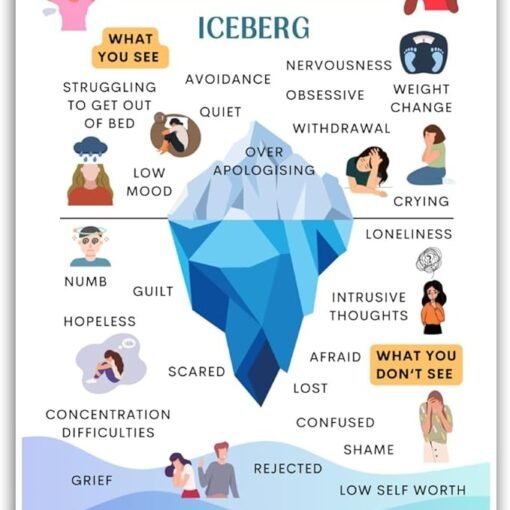
Self-esteem is more than just how you feel about yourself; it’s your sense of self-worth and confidence in who you are and what you bring to the world. A healthy level of self-esteem allows you to feel capable, valued, and secure in your decisions. On the other hand, low self-esteem can make you doubt your abilities, feel inadequate, and hold you back from reaching your potential. If you’re questioning your value or constantly second-guessing yourself, it may be time to look closer at your self-esteem.
1. What is Self-Esteem?
Self-esteem refers to your overall opinion of yourself—how you view your strengths, abilities, and personal worth. When you have healthy self-esteem, you generally feel good about yourself, see challenges as opportunities for growth, and feel resilient when facing setbacks. Low self-esteem often leads to negative self-talk, feelings of inadequacy, and a fear of failure, which can impact everything from relationships to career goals.
2. How Do You Know You Need to Improve Your Self-Esteem?
Signs that you may need to boost your self-esteem include constantly comparing yourself to others, struggling to accept compliments, feeling self-doubt, and fearing mistakes or rejection. If you often feel that you’re “not good enough,” find yourself overthinking decisions, or avoid taking on new challenges, these could be signs of low self-esteem. Recognizing these patterns can be the first step in making positive changes.
3. Recognizing What’s Decreasing Your Self-Esteem
Certain habits and situations can unknowingly chip away at self-esteem. For example:
- Negative Self-Talk: Thoughts like “I’ll never be good enough” or “I’m a failure” can make you question your worth.
- Comparisons with Others: Constantly comparing yourself to others’ achievements or lifestyles can leave you feeling inadequate.
- Past Experiences: Negative experiences, whether in childhood or adulthood, can influence how you see yourself.
- Perfectionism: Striving for perfection often leads to disappointment and feelings of failure, which impacts your self-esteem.
- Fear of Rejection: Avoiding opportunities or relationships due to fear of rejection can reinforce feelings of inadequacy.
Becoming aware of these influences can help you build self-compassion and challenge the patterns that hold you back.
4. How to Increase Your Self-Esteem
Here are some steps, grounded in principles from Cognitive Behavioral Therapy (CBT) and Acceptance and Commitment Therapy (ACT), to help you strengthen your self-esteem:
- Challenge Negative Thoughts (CBT): Identify negative thoughts, like “I’m not good enough,” and question their truth. Replace these with more balanced, realistic statements, such as, “I may not be perfect, but I am capable and learning.”
- Set Small, Achievable Goals (CBT): Start with small steps that build confidence and a sense of accomplishment. Completing these goals can reinforce the belief that you are capable.
- Practice Self-Compassion (ACT): Rather than criticizing yourself for mistakes, practice treating yourself with the same kindness you’d offer a friend. Accept that everyone has flaws and imperfections and that these do not define your worth.
- Accept, Don’t Avoid (ACT): If fear of failure or rejection is holding you back, practice acceptance. ACT encourages acknowledging your fears and moving forward in line with your values rather than avoiding situations that make you uncomfortable.
- Mindfulness Exercises (ACT): Mindfulness can help you stay present and recognize negative thoughts without letting them define you. Over time, this practice can make it easier to handle self-doubt and remain grounded.
5. How Counseling Can Help Increase Your Self-Esteem
Counseling can be a powerful tool for building self-esteem. Sometimes, it’s hard to see ourselves clearly without outside support. A trained professional can quickly uncover patterns and insights that might be hidden from your view. We know the path to restoring self-esteem and can guide you there faster than if you were to go it alone. A therapist can quickly work with you to uncover the root causes of low self-worth, identify negative thought patterns, and help you develop healthier ways of viewing yourself. Through evidence-based techniques from CBT and ACT, counseling can empower you to:
- Develop positive self-talk and realistic self-perceptions.
- Set and achieve goals that reinforce your self-confidence.
- Accept yourself as you are while also working toward personal growth.
- Gain insight into how past experiences impact your self-esteem today.
If you’re ready to start building a stronger sense of self, I’m here to help. Although located in Tyler, I offer counseling in the great state of Texas through telehealth. Reach out today at 903.749.4001, and let’s work together to help you find confidence, clarity, and a renewed sense of self-worth.



